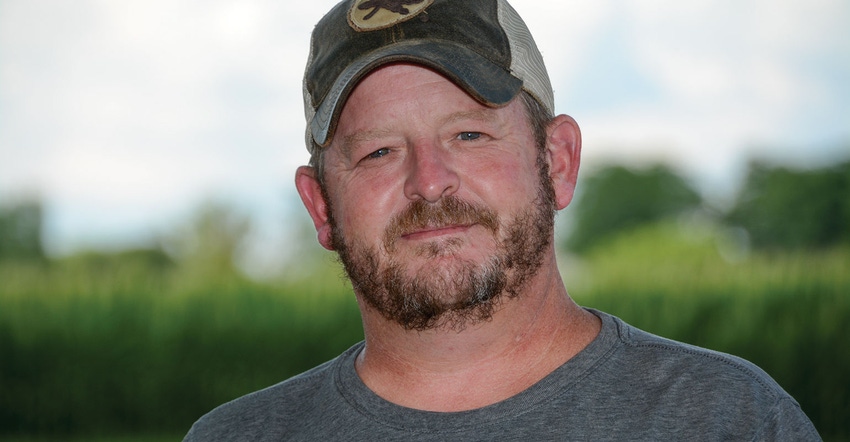
When a startup for direct-to-farm crop inputs approached Todd McGuire to see if he wanted to save some money on crop additives last spring, the Ohio farmer didn’t spend much time thinking about it.
“We’re always looking for the best value for the investment cost,” says McGuire, who grows 6,000 acres of corn and soybeans near Urbana. “We saved 20% to 30% on the cost of crop additives like the nitrogen stabilizer we purchased from Meristem.”
Having yet another option to buy inputs is a perfect fit for McGuire. His strategy is to diversify business partners up and down the business chain to ensure competition and choice. That includes financing, marketing, inputs and grain sales.
“We don’t market grain solely with one entity — we use a combination for the most part,” he says.
While it may seem like more work, McGuire believes this approach offers more flexibility — and competition. He has working relationships with three processors within 50 miles of his operation.
“That really gives us some options,” he says. “We are about 50% sold over $4 corn on 2020 crop.
We made some sales 18 months ago on 2020 crop that turned out to be a really good idea.” Habits and fear make people resist forward sales, “but if you don’t market at the right time it makes you uncompetitive.”
Seed purchases are even more diversified. “The people I have bought seed from I’ve kept pretty constant in the past 10 years, but it’s seven different companies,” McGuire says. “Each of them want all the business, of course, but typically we have done well negotiating our seed price. I try to pick the best products each year from multiple companies, and it’s also a way to diversify and hedge. If you have Company A’s weak genetics on a dry year and Company B has weak genetics on a wet year, and you plant some of each, we’re hedging against total disaster.
“And it does help manage price just because of competition.”
Another business partner, Ohio-based Premium Ag Commodities Inc., uses the strength of consolidated volume to achieve discounts on crop inputs for farmer-members, and provide services such as insurance and grain merchandising. But PACI’s best attribute may be market intel and information sharing. PACI is legally a co-op but started in 1975 as a farmer focus group.
“There’s still a lot of value in it from a peer group standpoint,” McGuire says. “I can call the manager and see if the group has a position or advice on fertilizer, or non-GMO seed, and they help us make decisions. Otherwise, we’d be on our own because we don’t necessarily share with neighbors who see each other as direct competitors. That group of people in PACI is pretty open with each other.”
McGuire, who farms with his father, Jack, and brother Paul, also has multiple financing options.
“We have two or three places established for funding,” McGuire says. “Our main operating line is with a bank, but our contact there retired. Some financing is with Farm Credit, and some is with a third bank. “Farm Credit would take every bit of our business if we let them have it,” he says. “It might be easier to have just one lender to work with, but that’s too complacent — not a good way to diversify and hedge.
“If any of those banks called our note, we could survive it. But with just one bank, it would be a lot harder,” he explains.
Retailer role
Retailers have their place in McGuire’s business. But he also thinks there’s a place for wholesale. “Logistically, we still have to get products from point A to B, and at times, we need to have service,” he says.
What drives his need for more options when it comes to buying and selling?
“The lack of competition is an issue for farmers,” he says. “These new suppliers like Meristem are keeping these big companies honest.”
About the Author(s)
You May Also Like






